If it’ll be your first time to travel to South Korea and you can’t decide when to go, spring would be the ideal choice – the weather is at its most pleasant as it’s not too hot nor too cold, there are tons of festivals you could go to, you get to see all kinds of flowers in full bloom, and you get to enjoy Korea’s mouthwatering seasonal food!
To give you a better idea of the spring season in Korea, we’ve listed down all the basics you need to know before you go from travel essentials, what to wear, when and where to see Korea’s cherry blossoms, and the best things to do in spring, to name a few. So get your notes, excel sheets, or whichever tool you use, and let’s plan your most epic South Korea trip yet!
Korea’s Spring Season: when is it, what to expect, and what to wear
Spring in Korea usually starts in March and lasts until May or early June. Temperatures begin to rise from their below-zero winters to about 6°C - 18°C (42.8°F - 64.4°F) in the spring, which is why this makes it a great time for first-time travelers to South Korea – you get to pack light and walk through pleasant weather.
Klook Tip: Remember to bring a handful of masks or buy some once you arrive. During April, yellow dust (Asian Dust/sandstorm) comes in from the Gobi Desert on the borders of China and Mongolia, this dust can greatly affect respiratory health so it’s advised to mask up and follow protocols.
Speaking of packing light, your spring outfit in Korea will heavily depend on which month you plan on going. If it’s March, expect it to be much colder than April and May, so if you get cold easily, you may want to bring in some thermals just in case. Otherwise, the Korean spring season calls for only lighter jackets and some layering, you can leave the heavier and puffer jackets at home.
Airport transfers and how to get around
Getting from point A to point B in Korea is super easy, you’ll only need one transportation card for public transportation in the country, from buses, subways, and even taxis. The only time you can’t use them is if you need to board intercity trains or buses as these require separate tickets.
Intercity Transportation
Intercity transportation includes KTX (Korea Train Express / high-speed Korea Rail) and airport transfers like AREX (Airport Railroad Express Train) and K-Limousine Bus. If you’re planning on exploring outside Seoul, you could take the KTX to get to other cities like Daejon, Busan, and Suncheon to name a few. There’s also a direct KTX between Seoul and Busan, a much more affordable option if you plan on exploring just those two cities for your trip.
Airport Transfers
Korea has super convenient options to get you to and from your accommodation and the airport. As mentioned, there’s the AREX train, the K-Limousine Bus, and you also have other choices like private airport transfers and taxis. The best option will really be up to your preference, budget, and where you’re staying.
For our recent trip, we took the K-Limousine Bus since our hotel was one of its designated stops. For all options mentioned except for taxis, you could book them ahead for added convenience. If you somehow end up with airport taxis as your only choice, you could check out this map from Incheon Airport’s website that shows where the taxi stands are.
Commuting in South Korea
Commuting within Korea’s cities is also really easy as you’ll only need one transportation card to hop on public transportation, the most popular being the T Money card. You just tap these cards on any city bus, subway gate, or taxi. Other kinds of transportation cards also double as debit cards that you could use as payment in almost any physical store and restaurant in the country! One of our favorites is WowPass – we used it for transportation, payment at stores, and even to exchange our currencies from our home country to Korean Won.
Klook Tip: It’s much more accurate to use Naver Maps when in Korea rather than Google Maps, the app has an English version both for iOs and Android.
To help you decide, we’ve organized three prepaid + transportation cards below. These cards can also be booked on Klook right away, all you have to do after is pick them up at the airport or other locations that are most convenient to you.
Features | |||
Public Transportation | ✅ | ✅ | ✅ |
Debit card feature | ✅ | ✅ | ❌* *Only available at convenience stores and select affiliated stores |
Customizable card | ✅ | ❌ | ❌ |
Dedicated mobile app | ✅ | ✅ | ✅ |
Accepts different currencies for top-up | ✅* *Only if you use your credit / debit card | ✅ | ❌ |
Can top up online | ✅ | ❌ | ❌ |
Validity | 5 years | Card: 6 years from manufacture date Unused balance: 6 years from last top-up (so you can carry over your balance if your card is expired, just reissue) | Card: no expiration Unused balance: 5 years |
Here’s a rundown of Korea travel essentials for a smooth trip
🇰🇷South Korea Essentials🇰🇷
🚄Trains & Airport Transfers
🚇Transportation & Prepaid Cards
When to expect Korea’s Cherry Blossoms
Cherry blossoms, locally known as beot-kkot 벚꽃, typically starts blooming either late March or early April with the first ones blooming down south in Jeju then works its way up north in Chuncheon. Depending on where you’re eyeing for your trip, note that blooms only last within a week but if you miss the cherry blossom, you can always catch other equally beautiful flowers like canolas, tulips, azaleas, and forsythia! Forsythias and azaleas usually bloom earlier than cherry blossoms, last year they bloomed as early as March!
South Korea has finally released their official cherry blossom forecast!
IMPORTANT REMINDER: The forecasted flowering dates are based on trends and seasonality. For more information, check out South Korea's Weather Information channel, Weather i.
Spring festivals to watch out for & where to see cherry blossoms
One of the best things about spring in Korea is their festivals, you’ll find that it’s a great opportunity to not only see all the beautiful flowers in full bloom but you’ll get to immerse yourself in their wonderful culture from food, traditions, and various fun and unique activities per region.
In and around Seoul
If you’re planning to stay in Seoul, here are festivals and cherry blossom spots you can go to that are either within the city or easily accessible from Seoul.
Yeongdeungpo Yeouido Spring Flower Festival (영등포 여의도 봄꽃축제)
Just by the National Assembly Building is a wide road lined with cherry blossom trees and when in full bloom, you’ll be able to walk under a thick canopy of pink flowers, as if you’re a main character in a romantic drama!
Every year in April they hold the Yeongdeungpo Yeouido Spring Flower Festival and you can expect a variety of programs like live performances, food markets, and exhibits. As of writing, the festival date has yet to be announced. For quicker updates, you can check the Yeongdeungpo Cultural Foundation website.
📌 How to get to Yunjungno Cherry Blossom Walkway (윤중로 벚꽃길): Take the bus or subway to National Assembly Station then walk about 13 minutes to Youiseo-ro (여의서로), this is the road where the cherry blossom walkway is. You can also type in “Yunjungno Cherry Blossom Walkway” or “윤중로 벚꽃길” on Naver maps and it’ll show exactly where it is.
📍More cherry blossom spots in Seoul
Parks
In Namsan Park
Near Lotte World Seoul
Get there via round-trip shuttle bus from Seoul
or join a day tour + other activities
Palaces
You get free entry if you’re wearing a hanbok!
Join a guided tour that includes all three palaces and more.
Hangang Seoraeseom Canola Festival (한강 서래섬 유채꽃축제)
There’s more to Korea spring than Cherry Blossoms! Head over to Seoraeseom Island, a man-made island connected to Banpo Hangang Park, and see a whole park filled with yellow flowers known as either Rapeseed, Field Mustard, or simply Canola Flowers.
Klook Tip: Keep your eyes open, see if you can spot N Seoul Tower from the island!
Every May they have the annual Hangang Seoraeseom Canola Festival with programs that vary from musical performances and eco-friendly workshops. There’s no announcement yet for festival dates but to give you an idea, it was previously held from 12 - 21 May 2023. For a more timely update, you can check the Hangang Park website.
📌How to get to Seoraeseom Island: Take the bus or train to Sinbanpo Station then walk about 20 minutes to Seoraeseom Island.
Eungbongsan Mountain Forsythia Festival (응봉산 개나리축제)
At around the same time as when cherry blossoms are blooming, forsythia also makes its appearance in Eunbongsan Mountain, blanketing the mountain with beautiful yellow flowers. You can head to the mountain peak where you’ll find an octagonal pavilion that’ll give you amazing views of Han River, Jamsil Sports Complex, and Seoul Forest!
Klook Tip: Catch both cherry blossoms AND forsythia in one scenic walk to and from Eungbongsan and Seoul Forest!
Route: Take the stairs going down Eungbongsan and follow the pedestrian path that leads to Yongbigyo Bridge. Keep walking until you see in big letters “서울숲 Seoul Forest”.
Every year in April, you can experience the Forsythia Festival in Eungbongsan Mountain where they usually have live concerts, traditional music performances, fireworks, local food favorites, and even contests depending on the year’s theme. There’s been no announcement yet of festival dates but you can check the Seongdong-gu website for more updated news.
📌How to get to Eungbongsan Mountain: Take the subway to Eungbong Station and get out at Exit 1 or hop on a bus that stops at Eungbong-dong Hyundai Apt. From either of the stops, you can get to the stairs that leads up to Eungbongsan Mountain.
Other festivals near Seoul to watch out for for the best Korea Spring experience
💐 Taean Tulip Festival: Korea’s largest flower festival that usually happens every year from April to May. It’s about 3 hours from Seoul and you can take KTX from Seoul Station that’s Busan bound, get off at Cheonan-asan Station (천안아산역) and transfer to a bus then stop at Anmyeon Bus Terminal.
💐 Baeksa Sansuyu Flower Festival: Here you can see the pretty dogwood flowers in the small village of Baeksa and enjoy all kinds of Korean food, it also makes for a great day trip to take a break from the city. You can get here via the Gyeonggang Line Imae Station then get off at Icheon Station and board a bus that stops at Dolibli Hall.
In and around Busan
We now head to the southeasternmost tip of Korea, Busan! It’s a seaside city and the second-largest of the country where you can expect beaches, insanely fresh seafood, and one of the biggest fish markets in Korea, Jagalchi Market. Busan also experiences all four seasons but you can expect milder winters and rainier summers compared to the capital.
Jinhae Cherry Blossom Gunhangje Festival (진해 벚꽃 군항제)
The Jinhae Cherry Blossom Festival is one of the biggest and most popular cherry blossom festivals in South Korea, so if you’re headed to Busan in the spring, best make sure to add it to your itinerary! As of writing, they have yet to announce this year’s dates but for reference, 2023’s dates were from 25 March to 3 April.
The festival consists of many spots and stations to see cherry blossoms, tons of local bites to eat, and various activities (e.g., caricatures, fashion shows, small shops, etc). You also don’t have to worry if it’ll be your first time there as they usually have tourist information tents.
📌How to get to Jinhae: Jinhae is much closer to Busan than Seoul, so the trip will only take about 1-2 hours either by bus, bus + train, car, or a booked day tour from Busan. If you’re coming from Seoul, you could opt for an intercity bus via Seoul’s Nambu Bus Terminal, KTX, or book day tours that depart from Seoul.
Gwangyang Maehwa Plum Blossom Festival (광양매화축제)
Gwangyang Maehwa Village in Jeollonam-do is known to have the most number of plum blossom trees in the country, so you can expect beautiful walks here with endless blooms lining your paths!
Every year around March, Gwangyang Maehwa Village in Jeollonam-do hosts a festival where you not only witness the pretty plum blossoms but also enjoy all kinds of plum-infused delicacies like maesil ice cream, maesil tea, and even maesil bibimap and maesil makgeoli, so watch out for banners that have “maesil” or “매실” on them (which will probably be all over)!
Klook Tip: Try scheduling your trip on a weekday so it’s less crowded. As a safety measure, the Gwangyang City Hall even released an announcement in 2023 addressing festival-goers to avoid weekends since weekend crowds typically exceed venue capacity.
📌How to get to Seomjin Village / Gwangyang Maehwa Village: You can book a day tour that departs from Seoul or Busan or if you want to DIY, you can take KTX from Busan Station to Gupo Station then from there, you take another train to Hadong Station. Once in Hadong Station, get on a local bus (at time of writing, it’s the 35-1 bus) and get off at the 6th stop, “매화정보화마을”. The festival grounds will be a 4-minute walk from there.
More cherry blossom spots and festivals to watch out for
🌸Gyeongju Cherry Blossom Festival (경주벚꽃축제): Usually in April, you can check their Instagram page for when they announce festival dates. It’s about 1-2 hours from Busan and you can easily book a day tour too.
🌸Jeju Cherry Blossom Festival (제주왕벚꽃축제): Watch out for the king cherry blossoms, they’re known to the largest cherry blossom variety! The festival usually starts late March, you can watch out for announcements and more details on their Facebook page.
More activities perfect for Spring in Korea
While the flowers are in full bloom and the skies are clear, it’s the best time to go hiking, have picnics, visit amusement parks, and indulge in drool-worthy seasonal food like hwajeon (화전, sweet rice cake with edible seasonal flowers), jjukumi (쭈꾸미, webfoot octopus), and more!
More than sharing a few bites and drinks during picnics, some parks also provide bike rentals and spring events. If you’ll be in Seoul, you can head to Seoul Forest, Yeouido Hangang Park, and Namsan Park. For some spots outside Seoul, you can check Juknokwon Bamboo Forest in Jeollanam Province, Ilsan Lake Park in Gyeonggi Province, and Nami Island in Gangwon Province.
From dreamlike cherry blossom spots to exciting festivals and healing spring activities, we hope this guide helps you have a magical spring in Korea experience. 💖
More guides to help with your trip to South Korea
What is Klook?
Klook is Asia’s leading platform for experiences and travel services. We curate quality experiences ranging from attractions and tours to local transport and experiential stays, in over 2,700 destinations globally. Klook’s mission is to empower travelers around the world to discover, book, and experience the best things to do anywhere, anytime - including attractions, activities, car rental, tours, local transfers, wifi, and SIM cards.
✨ Follow us for more deals and inspiration for your upcoming travels
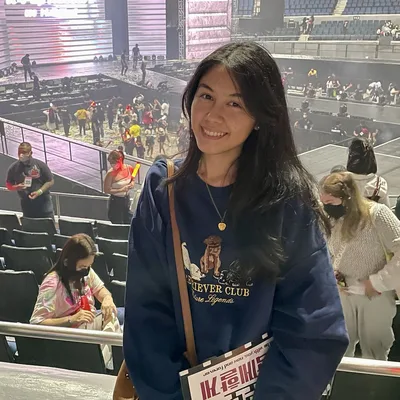
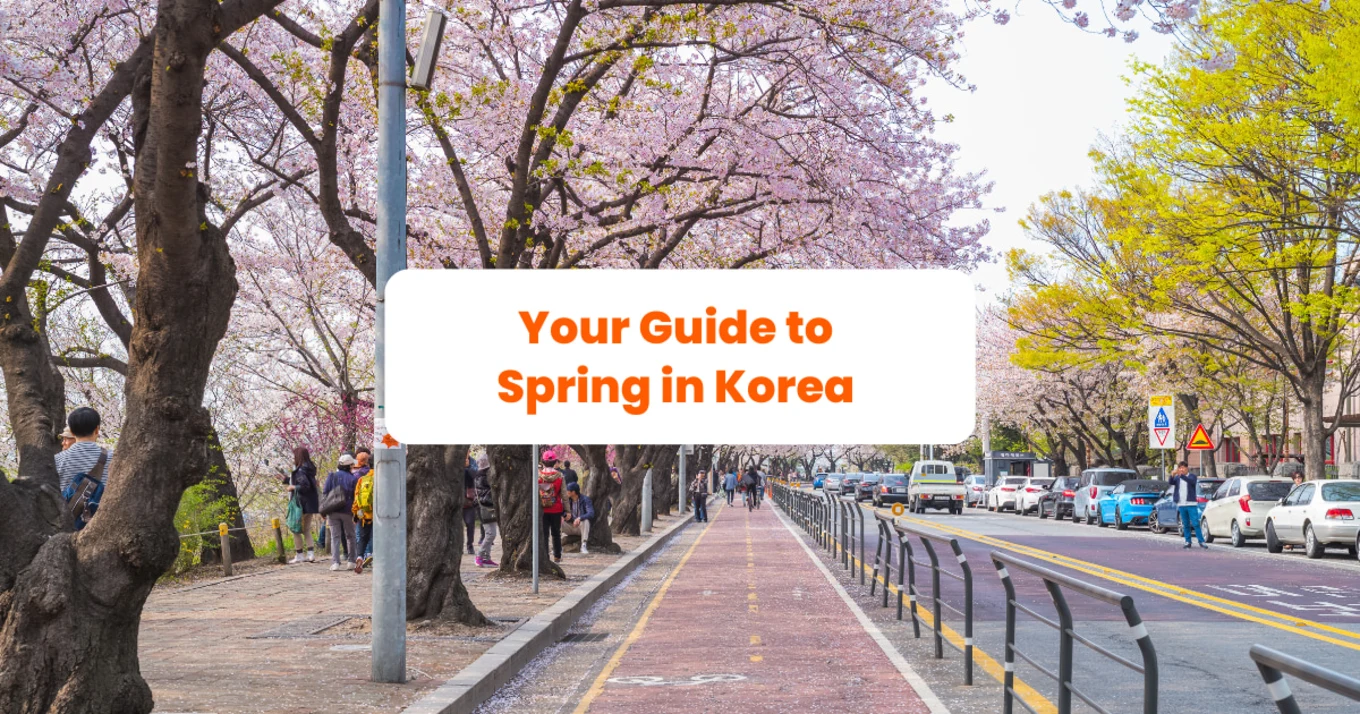






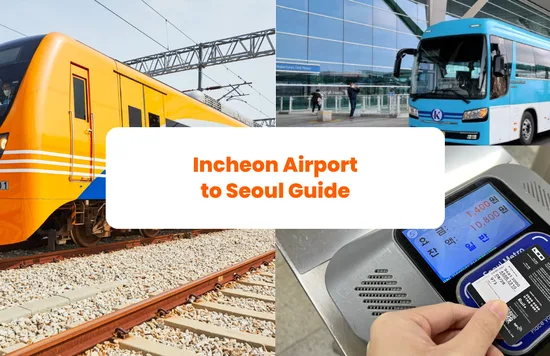


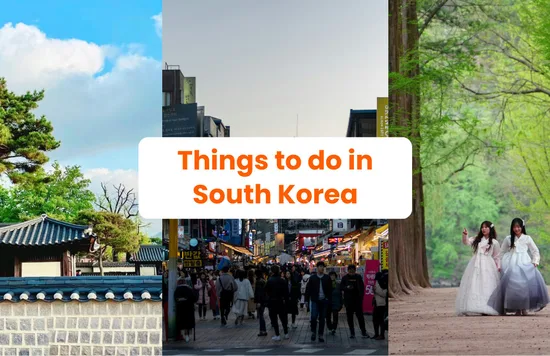




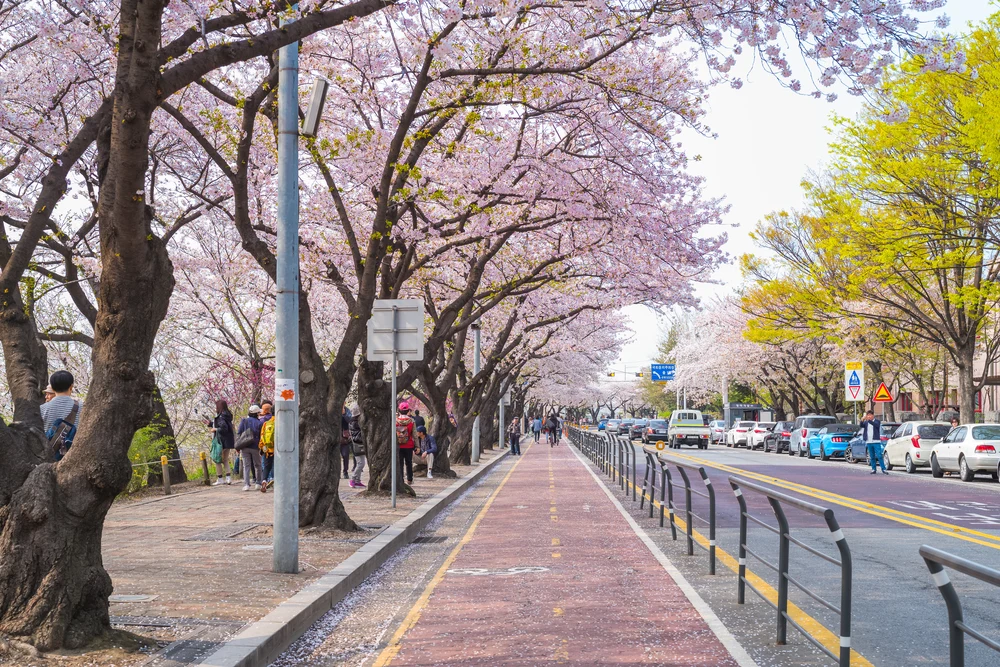
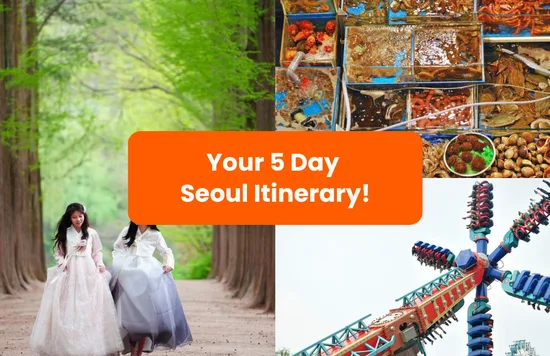







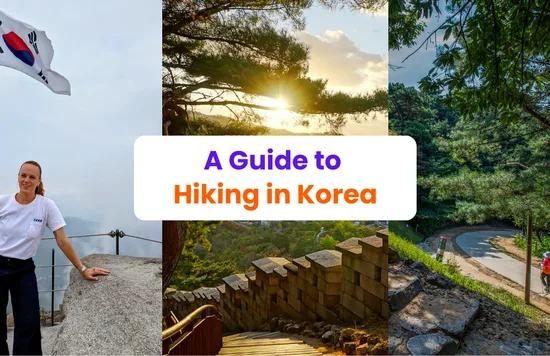


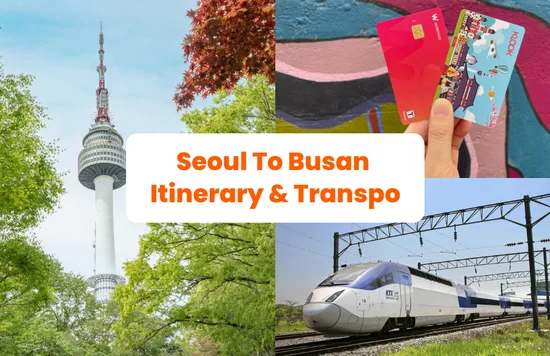
![[usxanz] Korea Esim](https://res.klook.com/image/upload/fl_lossy.progressive,q_85/c_fill,w_550,h_356/v1727656087/xudsgaxgsfkbjbsktkym.webp)

















